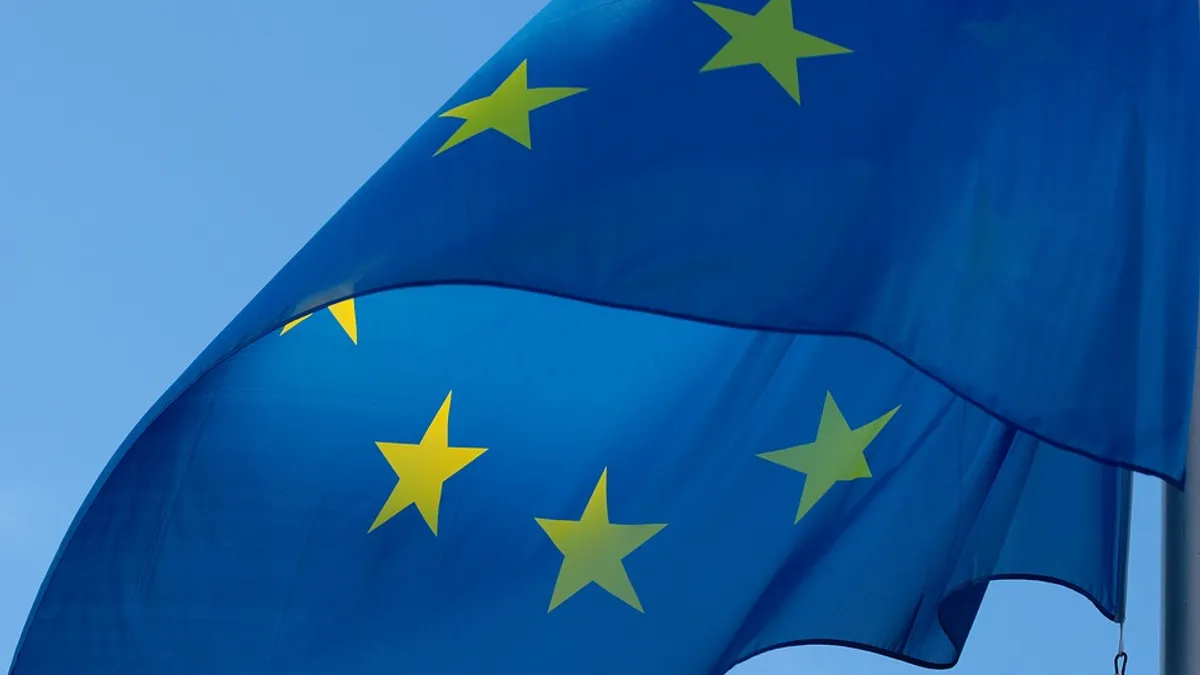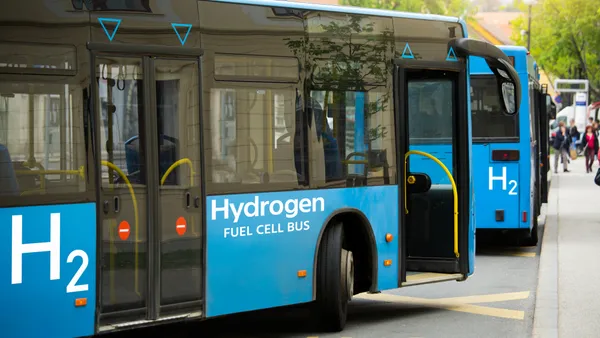Dive Brief:
- The European Commission has committed to invest 695 million euros (nearly $800 million) to develop a more sustainable transportation infrastructure in Europe.
- The funding will go toward 49 projects across all major modes of transportation, including airports, ports, rail and battery-electric cars.
- An additional 450 million euros (about $517 million) will be made available to finance alternative fuel infrastructure through the InnovFin Energy Demo Projects and CEF Debt Instrument, which are managed by the European Investment Bank.
Dive Insight:
The overarching goal for the projects is to reduce carbon emissions from transportation throughout Europe. Countries can achieve that collective goal by adopting low- or no-emission mobility options including battery-electric vehicles.
Most of the investment will go toward infrastructure improvements railways, maritime connections and air traffic management. But more than $287 million will go toward 26 projects for developing new transportation technologies, especially those that promote the use of alternative fuels.
Some of those projects include electrifying urban and regional bus routes in Croatia, Italy, Slovenia and Slovakia. Others involve deploying hydrogen-fueled transportation infrastructure in Denmark, Latvia and the UK. Although the commission didn't elaborate on specifics for the hydrogen transportation projects, they could be similar to the hydrogen-fueled passenger train that began operating in Germany last month.
The commission has made it a priority to ensure that sustainable transportation advancements are interoperable among countries. It pushes for more technology and digitalization to standardize infrastructure across multiple countries, such as electronic road tolling systems.












